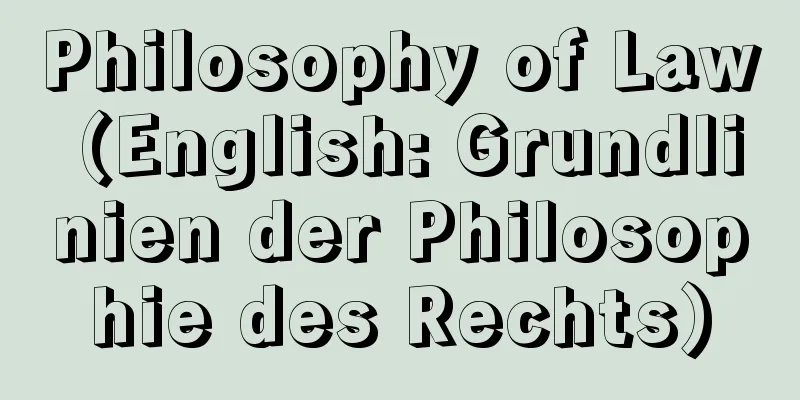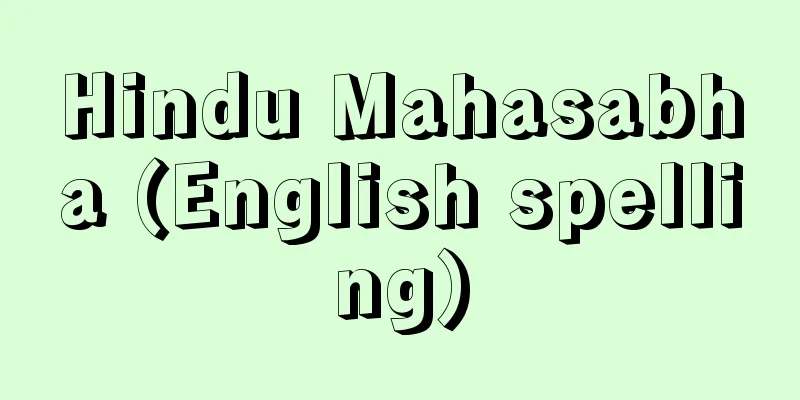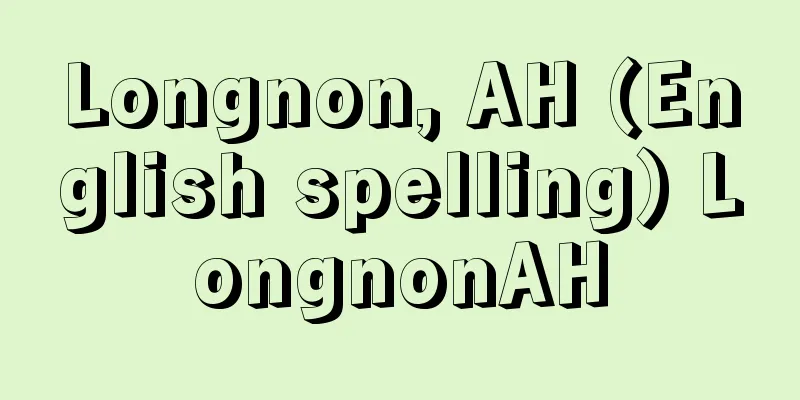Philosophy of Law (English: Grundlinien der Philosophie des Rechts)

|
One of the major works of the German philosopher GWF Hegel. Published in 1821. It considers the development of law dialectically and regards the state as the highest moral state. It is generally considered a conservative book that regards the Prussian state as sacred and absolute, and was thoroughly criticized, especially by Marx. Source: Encyclopaedia Britannica Concise Encyclopedia About Encyclopaedia Britannica Concise Encyclopedia Information |
|
ドイツの哲学者 G.W.F.ヘーゲルの主著の一つ。 1821年刊。法の発展を弁証法的に考察し,国家を最高の道義態とする。一般にはプロシア国家を神聖,絶対視する保守的な書とされ,特にマルクスによって徹底的に批判された。
出典 ブリタニカ国際大百科事典 小項目事典ブリタニカ国際大百科事典 小項目事典について 情報 |
Recommend
Yorimasa
Noh piece. The second is a Shuramono (Shura story...
Venture Business
This refers to small and medium-sized enterprises ...
King Bird of Paradise
A passerine bird of the family Caprifoliidae. Tota...
Four governors of Oshu
...The Oshu Kanrei system was thus divided. After...
Fried tofu - Fried tofu
...Because of its mild flavor, it can be used in ...
Judgment - Saikyodome
This is a record of civil court decisions compiled...
Kerenyi
Hungarian mythologist. Studied at the universities...
Matsudaira Tadayoshi - Matsudaira Tadayoshi
A feudal lord in the early Edo period. Childhood ...
Laparoscopy
…Generally, the cannula is placed at the front an...
Zamoyscy, Jan
[Born] 1542 [Died] 1605 A Polish nobleman. He rece...
Tomb of Prince Itoku
Prince Yide, Li Chongjun, was the eldest son of Em...
Antigorite - Antigorite (English spelling)
It is the most common of the so-called serpentine...
harpsichord
A plucked string instrument with a keyboard (see s...
Adachi Tokiaki
Year of death: 2nd year of Shokei/3rd year of Genk...
high potential venture
...That is, it is a business in which highly skil...









